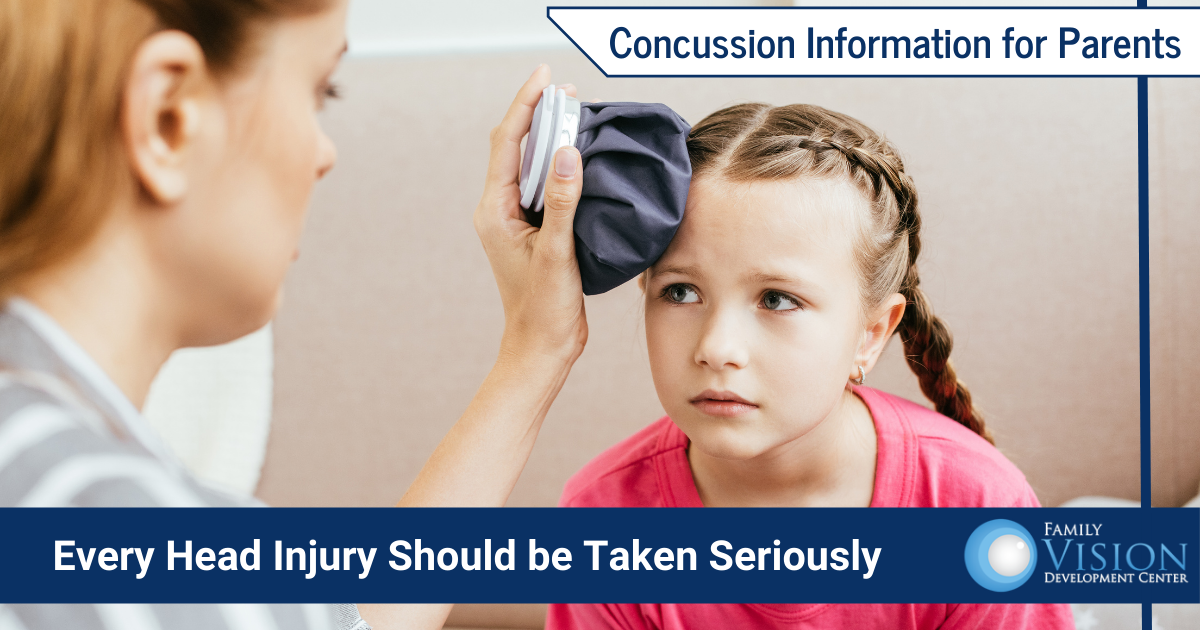A concussion is a mild traumatic brain injury that results from a bump, blow or jolt to the head or the body that is violent enough to cause the brain to hit the skull. For parents of active kids, they need to understand that this type of head injury can have a serious effect on a young, developing brain, and should be dealt with appropriately. Knowing how to respond to a concussion can make a difference in preventing further, long-term negative effects.
A Concussion Can Happen During Any Sport
Many parents think they only need to worry about their child getting a concussion if they play a very physical sport, like football or hockey. But the truth is that a concussion can happen at any time while participating in just about any sport or athletic activity. For instance, soccer, basketball, karate, and even rollerblading or cycling can present the possibility of a head injury.
Always Insist on Head Protection
Kids very often underestimate the need for wearing a helmet. Parents might suggest wearing one, but give in as kids choose to forgo the head protection. But it is so important for parents, and coaches, to be firm in their insistence that kids always wear properly-fitting, sport-appropriate headgear at all times. A head injury can happen in an instant and can have lasting consequences when proper head protection is not being used.
Stop Playing Immediately After a Head Injury
Competitive kids may be inclined to “shake it off” and keep playing, even after being hit in the head. Unfortunately, parents might agree, especially if their child does not appear to be physically injured or bleeding. However, this is a very poor decision as a second injury could be even more dangerous, possibly resulting in lasting brain damage or even death. Any child that has experienced any type of blow to the head, whether by falling down or colliding with another player, should immediately stop participating and have their injury examined by a doctor or sideline trainer. Additionally, they should not return to physical activities until a doctor has determined that it is safe to do so.
Watch for Telltale Signs of Concussion
Signs and symptoms of a concussion may show up quickly after the injury, but not always. In fact, it could be hours or even days for symptoms to become obvious. It can be difficult to determine the severity of an injury right away. And you must remember that some symptoms may not appear until several days to more than a week after the injury. So be on the lookout for the following:
- Headache
- Nausea or vomiting
- Dizziness or balance problems
- Confusion or forgetfulness
- Loss of consciousness
- Sensitivity to light or noise
- Feeling sluggish, groggy or slowed down
- Mood or personality changes
- A general feeling that something is not right
- Difficulty with sleep
A Concussion Can Affect Vision
Along with the above symptoms, a concussion can also cause changes to your vision (known as post-concussive vision syndrome). Some vision problems that can result from a head injury include:
- Eye focusing – not being able to quickly and easily see an object clearly (objects look blurry)
- Eye Movements and Tracking – not able to easily follow a moving object from one spot to another, or switch fixation from one object to another. Sometimes this can be reported by students saying that words are moving on the page.
- Depth Perception Issues – difficulty with accurately judging the distance between objects.
- Eye Teaming – not able to get both eyes to work together to focus on an object, often reported as double vision
- Peripheral Vision Loss – problems with your wide-angle field of vision, or feeling like you’re looking through a narrow tube
Vision therapy is an extremely effective form of treatment for post-concussive vision syndrome that occurs following a head injury. This type of individualized rehabilitation program helps to retrain the visual system to restore proper communication between the eyes and brain. Family Vision Development Center is an exceptional concussion center that incorporates vision therapy programs to correct visual disorders that occur as a result of head trauma. Contact us at 630-862-2020 to learn more or to schedule an appointment in our Aurora office location.

